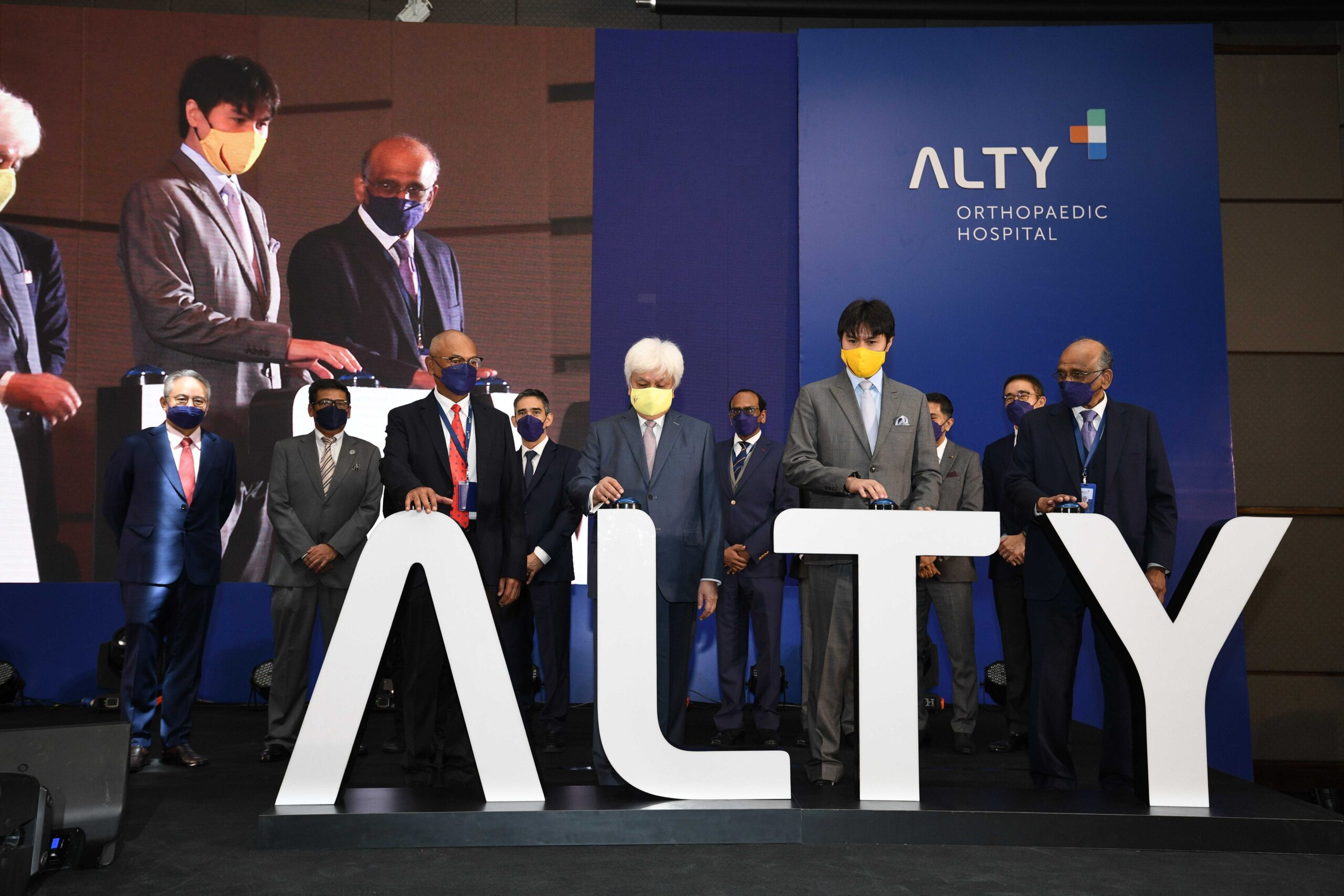KUALA LUMPUR, July 7 – ALTY Orthopaedic Hospital (ALTY), one of Malaysia’s first single-speciality orthopaedic hospitals, officially opens today, serving patients with a full suite of surgical and non-surgical treatments using cutting-edge technology targeted for orthopaedic and musculoskeletal conditions.
ALTY which stands for ‘Adding Life to Years’, features a team of close to 150 personnel providing focused orthopaedic and musculoskeletal health care solutions, spearheaded by eight founding surgeons to provide every patient with the attention and precise care needed.
The hospital is specifically designed for orthopaedics, with four specialised operating theatres, inpatient facilities including well designed suites and rooms, intensive care unit (ICU) and high dependency unit (HDU), as well as physiotherapy and rehabilitation units.
Specialised treatments and therapies offered by the highly experienced team at ALTY include endoscopic spine surgery, robotic-assisted orthopaedic surgeries, sports surgery, total knee and hip replacements including complex revision, among others.
Assoc Prof Dr G Ruslan Nazaruddin Simanjuntak, chairman of ALTY Orthopaedic Hospital, said the facility aspires to ensure that patients can live their best life, by delivering high quality and timely musculoskeletal care to our patients through our team’s expertise and experience in this field.
“Today may be our formal launch ceremony, but the team at ALTY Orthopaedic Hospital have been welcoming patients since we opened our doors in mid-2021, during the pandemic.
“We are proud to be one of Malaysia’s first single-speciality orthopaedic hospitals, providing a full suite of medical services with dedicated staff and specialists, from screening to rehabilitation, including a 24-hour emergency department,” Dr Ruslan said in his speech at the launch today.
Eng Aik Meng, TE Asia Healthcare Partners group CEO, said the official launch of ALTY Orthopaedic Hospital in Malaysia marks a new era for the orthopaedic health care segment, not only in Malaysia, but for the region.
“TE Asia Healthcare has always championed quality and accessible healthcare through our other single-specialty partners such as Cardiac Vascular Sentral Kuala Lumpur (CVSKL) and now we are privileged to continue doing so through our partner surgeons at ALTY.
“Being among the first single-speciality orthopaedic hospitals in the country, ALTY emphasises the importance of diagnostics in ensuring that patients receive the most effective treatments and therapies catered to their condition,” Eng said.
ALTY has invested close to RM15 million in acquiring and setting up advanced imaging systems that are critical for the accurate diagnosis of orthopaedic conditions.
Among the advanced imaging systems at ALTY available for the first time in Malaysia is the Esaote SpA’s tilting magnetic resonance imaging (MRI), which allows a patient to be positioned in a supine (lying down) or weight-bearing (standing up) position, where the device can rotate a patient from zero to almost 90 degrees.
This is helpful for doctors to analyse their patients as the compression and pressure caused by body weight reveal symptoms and disorders more accurately.
Another cutting-edge system also made available for the first time in Malaysia is the EOS advanced imaging system, which has 50 per cent lower radiation exposure compared to X-ray systems commonly used. The EOS can capture a full body image in 3D to produce a more accurate diagnosis, enabling doctors to closely monitor the progress of treatment.
It is also less harmful and invasive for children suffering from spinal deformities like scoliosis that require frequent imaging.
ALTY also uses Siemens’ Cios Spin which offers precise intraoperative quality control based on dedicated 3D technologies, offering a quick, non-invasive low dose radiation method.
Besides advanced imaging technologies, the medical team at ALTY observes Enhanced Recovery After Surgery (ERAS) protocol that streamlines patient processes before, during, and after surgeries.
This practice can effectively shorten the length of stay for patients and facilitate early mobility and recovery while improving outcomes and patients’ overall experiences.
Patients undergoing surgeries on their joints, knee or hip can be discharged from the hospital within three to five days, and an average of six days after scoliosis surgery.









